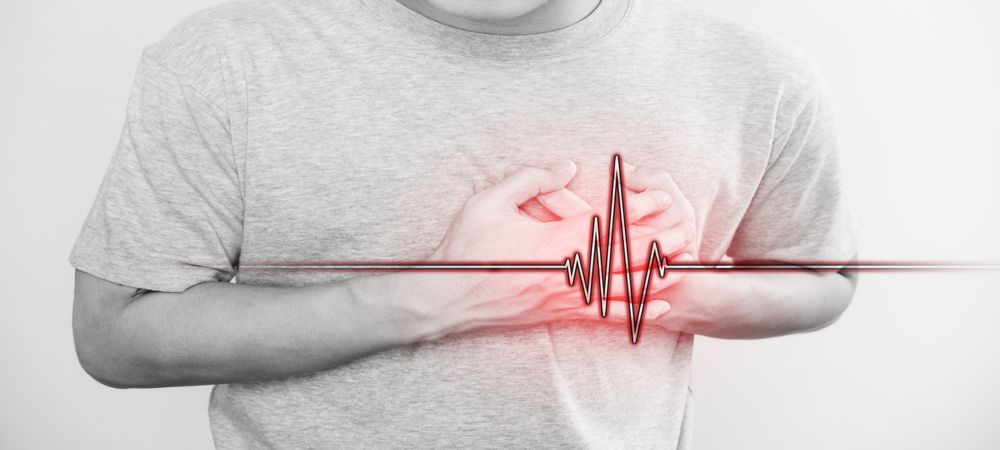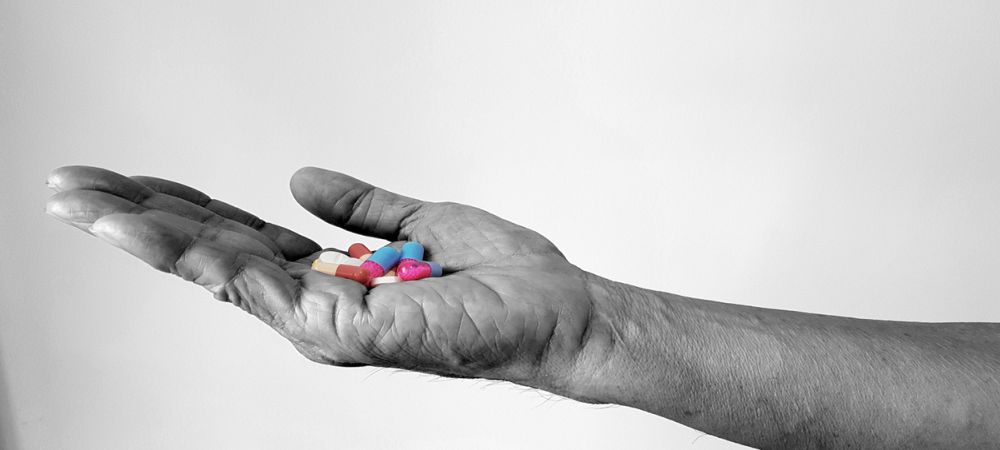If you are wondering what the causes of Amphetamine addiction are, you have come to the right place. Perhaps you are beginning to feel a strong dependence on Amphetamines. This is not a strange thing, as many people get addicted to Amphetamines.
Substances such as Amphetamines are important drugs. However, using them against the doctor’s prescription can lead to abuse. Abuse sets in once you start using it without a prescription. Also, if you find it difficult to stop amphetamine abuse, it is likely that you already have an addiction.
Although addiction is a serious issue, it is not without treatment. Understanding the causes of Amphetamine addiction will give you a grasp of the treatment you need. It will also help you to know the different addiction stages and what to do at each stage.
This article discusses how you can recognize Amphetamine addiction. We take a look at the factors that encourage amphetamine addiction. It also considers the treatment options and every other thing you need to know about amphetamine addiction.
What is Amphetamine Addiction?

Amphetamines are drugs for stimulating the central nervous system. If you are hyperactive or you have a sleeping disorder, Amphetamines are the go-to drugs. As a stimulant, it causes the user to experience some excitement and a sense of alertness.
There are two common components of Amphetamines you should know about. They are methamphetamine and dextroamphetamine. Of the two, methamphetamine is commonly abused. You will sometimes find people selling them illegally. In fact, Canada ranks among the top 10 countries that use Amphetamine stimulants the most.
Since it’s a stimulant, those in the mood to party often abuse the drug. They take the substance so they can dance and party for hours without feeling fatigued. It gets you high, and you have lots of energy to spend.
However, after the “highs” come the “low.” Abuse of Amphetamines can get you high only for so long. When the effects fade, it will erupt a feeling of dejection and sadness. This may lead you to take the same drug to avoid the sad phase.
If you are not careful, constant use will lead to addiction. Amphetamine dependence happens when you cannot function without taking the drug. The clincher is that painful withdrawal symptoms will come if you stop using the substance. Often, when people experience withdrawal symptoms, they end up going back to the substance.
Types of Amphetamine
Various medications contain Amphetamines. Some may contain one of the components, while some others may contain the two. The following are common types of amphetamine which people commonly abuse.
- Dexedrine
- Adderall
- · Vyvanse
Dexedrine
You can also treat ADHD with Dexedrine. It is a stimulant medication that contains dextroamphetamine, one of the components of amphetamine. Using Dexedrine enhances focus and provides the user with more energy. Dexedrine may be stronger than Adderall because it contains dextroamphetamine.
Since it’s a strong stimulant, young adults and teenagers often abuse it. Some students take it under the assumption that it helps them focus on their studies. Situations like this can lead to regular use of the drug, which slowly slips into addiction.
Adderall

Adderall is a medication that is essentially used to treat attention deficit hyperactivity disorder. This medication increases the alertness of people with this condition, thereby addressing the problem. It causes the release of certain chemicals in the brain, which improves your concentration.
As a result of this, Adderall can be easily addictive. Little wonder it falls under the category of prescription drugs that are being used for illegal purposes. Other drugs that fall in this category include opium and cocaine. Evidence asserts that the number of Adderall users has drastically increased since 2000 by almost 3000%.
Abusers of Adderall use it in different forms. Some grind it and snort. Others crush it, mix with water, and use syringes to inject it in themselves.
Vyvanse
This is also a prescription drug. It is a stimulant that helps to deal with hyperactivity disorder. Vyvanse specifically addresses the problem in children above the age of 6 who suffer attention deficit. The fact that it’s for children, however, doesn’t mean people have not abused it.
The drug has a likelihood of causing addiction. As such, if you use it improperly, you can begin to form a strong connection with it. Some side effects of its abuse include nausea, weight loss, vomiting, and increased heart speed.
Related article: What Is Methamphetamine Addiction?
When Am I Abusing Amphetamine?
Amphetamine is a stimulant that often comes in the form of prescribed drugs. You begin to abuse it when you start to take it against the advice of your doctor. Some people use these drugs as they desire without paying attention to its side effects.
Once you start to abuse the drug, there are some behaviour patterns you will begin to exhibit. The good news about amphetamines is that you can easily identify the symptoms. Spotting these symptoms indicate that you are already abusing the drug. The common symptoms include talking excessively, loss of sleep, and poor appetite.
You can also begin to experience some physical symptoms as a result of the abuse. This includes dilating pupils, increased body temperature and blood pressure. Unchecked abuse will slowly lead you into addiction, after which complete dependence begins.
You can also begin to get aggressive and agitated. You suddenly become restless and feel like doing something. If you are using amphetamines and you experience these, abuse has probably set in. At that point, it will help if you enroll at an amphetamine addiction treatment centre near you.
You should know these drugs readily have the potential to cause addiction. As a result of the “high” effect which they produce, dependence is a possible result. This is why they remain prescribed drugs administered by qualified personnel with adequate experience. Using these drugs because they make you feel good will do more harm than good.
If you are a young adult, you likely fall within the category of potential users of amphetamines. Studies show that young adults are under the perception that the drug helps with their creativity and focus. This accounts for one of the causes of amphetamine addiction. People pass on this unguided belief and consequently encourage the use of amphetamines.
Worldwide, amphetamines have become the second most abused drug by young persons and adults. If you take medications containing amphetamines, you have to do so according to a prescription. This is the only effective way to check whether or not you are abusing the substance. A disregard for a prescription is an invitation to abuse and, consequently, addiction.
Causes of Amphetamine Addiction: The Risk
Various factors can cause amphetamine addiction. These factors indicate that there are certain conditions when you can be at the risk of amphetamine addiction. Sometimes, your environment makes you susceptible to abusing substances. These factors include:
- Stressful lifestyle
- Suffering any form of anxiety disorder, bipolar, depression, or schizophrenia
- Can easily access amphetamines
Stressful Lifestyle
If you have a stressful lifestyle, there is a high chance you may resort to amphetamines to improve your focus. You can start using it so it can stimulate you. However, this may slowly become a regular thing, especially if you use it without the doctor’s prescription.
As such, you have to pay attention to what substance you use. Know the components of the drug you take and always make informed choices. If, after using a medication, it strengthens you and improves your alertness, you need to be more careful. Operating a stressful lifestyle can make it convenient for you to be addicted to amphetamines.
If You Have A Condition
If you suffer a disorder such as bipolar, schizophrenia or depression, you likely will want to feel better. You won’t want to experience your “down” in a sober state. As a result, you may resort to using amphetamines to stay energetic and erase worries. This may work temporarily, but it will gradually lead to abuse.
The period when you are dealing with a condition is when you need to keep a close relationship with your doctor. Using substances to feel good can only serve you for a short period. When it becomes an addiction, you may find it difficult to drop the habit.
Easy Access to Amphetamines
One of the causes of amphetamine addiction is having easy access to it. When you can conveniently get the drug, you stand a high risk of using it at will. Today, several young adults can purchase amphetamines illegally. This increases the possibility of abuse and addiction.
These three conditions increase your dependency risk. Therefore, the best way to prevent abuse is to ensure you prevent an unchecked use of amphetamines.
What are The Effects of Amphetamine Abuse On Your Health?
Dependence is the result of the arbitrary use of amphetamine. Once you are dependent, you can no longer do without the substance. But dependence is not the only result of amphetamine abuse. There are health risks you should know of.
Heart Problems

Amphetamines serve as stimulants and, as such, increase the speed of the heart. When you use it, your heart beats at a faster rate and pumps blood just as fast. This may be a normal thing for a healthy person. However, if you have a heart condition, amphetamines can be of serious concern to your health.
As a stimulant, amphetamines may lead to a blockage of your arteries. This increases your risk of getting heart disease. The blockage of the arteries limits the blood flow that goes to the heart. This may cause heart tissue to die. This kind of heart problem is not one that goes when the “high” comes down. A damaged heart tissue will remain damaged even when you become sober.
Amphetamines are also notorious for cerebrovascular complications. That is, the substance increases the rate at which you can have a stroke. If a person, however, already has a stroke, using amphetamine increases the chances of death.
Amphetamines may even cause more complications when combined with alcohol or other substances. You may want to experience an extreme level of being “high.” If this leads you to mix amphetamine with something else, the health risk associated becomes even bigger.
Short-term effects
Regular use of amphetamines creates a pattern. You begin to increase your doses and also mix with other substances. Maybe this helps you party hard and stay energetic. But what happens when the party’s over?
Amphetamines also lead to other short-term negative health effects. If you use amphetamines to adjust your mood, it will soon start to have negative effects. Such effects include being restless and irritable. Your hands may also begin to shake, and you may cry in severe cases.
You may start having panic attacks. Loud sounds scare you and you begin to lose yourself. This may go one for a short while before you get a hold of yourself. These are some of the short-term effects Amphetamine abuse has on your health.
Amphetamines May Affect Your Mental Health
Some people try to use amphetamines to fight their disorders. This remains one of the most common causes of amphetamine abuse and dependence. However, this often leads to more problems. When addiction sets in, it affects your mental health and puts you in bad shape.
If an amphetamine user readily has a mental condition, amphetamines will only complicate the condition. Common problems include hallucinations, depression, psychosis, violence, and suicidal behaviour.
Effects on Cognitive Abilities
Using higher doses of amphetamines can affect your cognitive orientation. The levels of dopamine in the brain can rise abruptly leaving behind adverse effects. Overuse can lead to a reduction in your cognitive ability, and you may start to act sluggish. It can also cause a breakdown of your muscles.
May Cause Fatalities
The above health risks are enough to establish that an amphetamine addiction can be dangerous. Regardless, it is important to consider whether amphetamine leads to fatality.
In worst-case scenarios, death may result from cerebral hemorrhage or high blood pressure crisis. Similarly, Amphetamine abuse can complicate pre-existing conditions.
There are different causes of amphetamine addiction. However, you are duty-bound to exercise care when taking drugs. It is always advisable to follow prescriptions, so you don’t develop an addiction.
Is There Treatment for Amphetamine Addiction!
Amphetamine can lead to several addiction problems for users. Once you become dependent, you may have to see an expert become free again. It is quite common for those at withdrawal stages to feel the urge to go back.
Although amphetamine addiction can be severe, it is not without treatment. Through treatment programs and therapy, you can begin to live free from substance use. The following are the essential steps you need to take towards getting professional Amphetamine addiction treatment.
Acknowledging the Need For Treatment
The first step to treatment is accepting there is a problem. Once you acknowledge you have an addiction problem, it becomes easy to submit yourself to the addiction treatment program.
Addiction Assessment
After acknowledgment, you can visit an addiction rehab centre. This is the place where you will discuss the addiction problem.
Here, an expert will attempt to understand the causes of your amphetamine addiction. Whether it’s your environment or other factors. At this stage, you will have to discuss the reasons you started using the substance with your therapist.
Discussion is necessary for treatment. Because for treatment to be comprehensive, the expert must have the accurate details of your addiction. So, do not feel shy to talk. An addiction treatment centre is a safe space where you can discuss your addiction challenges.
Remember, a comprehensive treatment model must help you to learn coping mechanisms. These mechanisms will sustain you and prevent you from going back even when you feel an intense urge.
Drug Counselling
Counselling understands the need for a step-by-step process in treating addiction. The eventual goal is to help you completely become free from amphetamines. However, counselling starts by helping you develop strategies to manage difficult situations in-between.
A counsellor seeks to understand the causes of your amphetamine addiction. After that, the counsellor then begins to help you build your self-esteem, so you don’t see drugs as a “messiah.” During addiction counselling, you will challenge unhelpful behaviours that lead you to substance abuse.
Under this process, you will go through a series of psychotherapy and group sessions. The focus of these sessions will be both on your recovery and your self-esteem.

Medical Assistance for Withdrawal
Causes of amphetamine addiction can vary. As such, the intensity of the addiction can be different based on the causes. It is possible that you may require medical assistance and support during your withdrawal stage. This is necessary if you find it extremely difficult to stay away from the substance, even for short periods.
Effective medical support will provide you with a safe environment. You will enroll in a detoxification program which will help you to remove all the substance in your body. The program will also provide support to reduce any symptoms that can take place during withdrawal.
Detox programs can last for different periods. The length of time is based on your level of amphetamine addiction. If it lasts long, you will continue to enjoy a 24/7 support service.
After a successful detox program, you will proceed to therapy sessions. The therapy session will further strengthen your understanding of the causes of amphetamine addiction. It will also help you learn ways you can prevent relapses.
Rehabilitation
Rehabilitation comes after detoxing. Detoxing helps you to remove all traces of the substance from your system. On the other hand, rehabilitation helps you to understand the cause of your amphetamine addiction.
To achieve the desired result, rehabilitation is tailored to serve your needs. No two rehabilitation programs are the same. Here at 1000 Islands Addiction Rehab & Treatment Centre, we consider every patient with their peculiarities. The goal of doing this is to give you a personalized experience.
One of the major aims of rehabilitation is behavioural therapy. An effective rehabilitation process includes group therapy, in-person counselling, and motivational interviews.
A rehabilitation program will help you build life skills that you can leverage to live a great life. It will also help you learn activities you can pursue post-rehabilitation. Some rehabilitation programs may also include family programs. The family programs help you to reconnect with loved ones and rebuild damaged relationships.
Overall, rehabilitation programs will help put you back in a good state of mind. The aim is to make you better than you came. After you are done with rehabilitation, you should become completely free from Amphetamine abuse.
To Sum it Up
It is difficult to identify specific causes of amphetamine addiction. However, some factors make you more susceptible to the use of amphetamines. These factors may be your environment or the nature of your lifestyle. Whichever is the case, the use of amphetamine can lead to addiction and accompanying side effects.
This article helps you to understand how to recognize amphetamine addiction. It also discusses the causes of amphetamine addiction and the right approach to treatment.
If you are experiencing Amphetamine abuse and dependence, don’t fret. No doubt, addiction can be a severe issue. However, with the right attitude to treatment, you can regain your life once more.
We have a team of experts who are not only understanding but also qualified to treat Amphetamine. More importantly, you have access to world-class facilities that will boost your treatment. Reach out to us to gain back your freedom.
Related article: Signs Of Amphetamine Addiction
